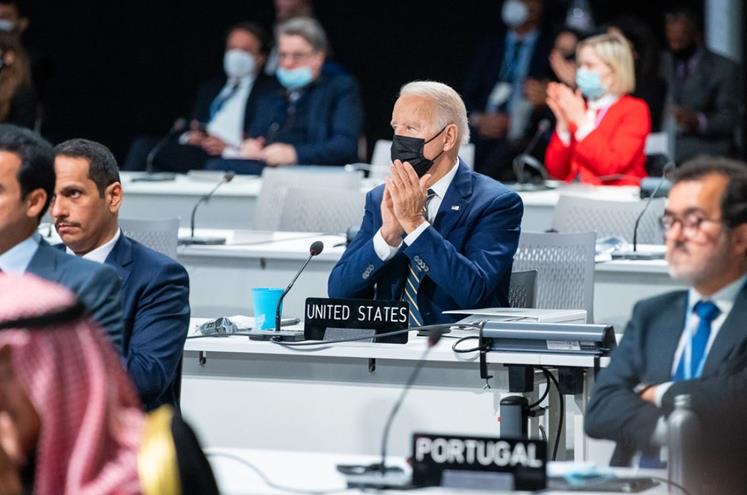The Wall Street Journal’s editorial page has pushed neoconservative party lines on foreign policy for decades; the last time I read a dissenting view on that subject in the Journal was when I wrote an editorial for it in 1989. Although my caustic remarks on a global democratic foreign policy were published on the editorial page, they were accompanied by another commentary that stated the editors’ convictions about America’s mission to bring everyone the benefits of American-style democracy. I stopped subscribing to the Journal about 30 years ago, and I would not have known about its latest pronouncements on global affairs if a kind subscriber had not sent them to me—in high dudgeon.
As an Irish American, this reader found the editorial “America Is Stronger Than It Looks,” by Walter Russell Mead, a Hudson Institute fellow, offensively Anglophile, as well as inappropriately belligerent. Mead starts off by underlining the dangers that Anglo-American democracy now faces on the international scene—from Putin, China, Iran, and so on. In the face of these challenges, Mead stresses the importance of maintaining “the global order that the U.S. inherited from the faltering British empire in the 1940s.”
There are many of us, by contrast, who believe there has been an overextension of American power. Indeed, some Americans may even ask the presumptuous question: “Why not give the world a rest and turn our attention to urgent problems at home?” Although this thought is an “appealing idea,” it didn’t lead to happy results, Mead tells us, when applied in the interwar period. That’s when we saw the rise of imperial Japan and Nazi Germany. Nonetheless, the U.S. managed not only to win the military contest against those aggressive powers, but to impose a commendable international order after 1945.
According to Mead, this order, or “system,” was aimed at purifying and elevating global politics, so it placed emphasis “on human rights, women’s equality, democracy promotion and such transnational issues as climate change.” Unfortunately for those controlling the levers of the system, it was not possible to impose that order on Russia after the Cold War, and even American leaders can no longer agree on what new human rights we are supposed to export. Such issues as climate change and LGBT rights have been added to the older laundry list of values that our system requires us to bestow on the rest of the world. Even if I grant that Putin is trying to gain control over the Eastern Ukraine and that China would like nothing better than to snatch Taiwan, why does an effort to counter these moves require the U.S. to convert others to its ideological fixations, like LGBT rights?
Mead imagines that such a bequeathing system existed as far back as the 17th century. He views it, for instance, as operational in Britain’s successful attempt to contain French expansion under Louis XIV. Apparently even back then, Britain (and mirabile dictu the “United States”) was struggling against continental European tyrants to produce “a liberal capitalist world system.” Thus, we find this anachronistic statement thrown into Mead’s text: “Louis XIV, Napoleon, Kaiser Wilhelm II, Adolf Hitler, Imperial Japan and the Soviet Union all tried to break the evolving Anglo-American world system. They all made history, and they all shook the order to its foundations. But they all fell short.”
Earth to Mars: There was no Anglo-American system in the 17th century, and it certainly didn’t exist against Napoleon. In the War of 1812, the U.S. fought against Napoleon’s enemy, which was then England. In World War I, it was the American government under President Wilson that sided with England from the outbreak of hostilities in Europe. This happened not because the German or Austrian government was trying to “break the Anglo-American system” but because the Anglophile ruling class in America took the British side from the outset of the European war. At that time there was no system for the opposing side to break. For cultural and ethnic reasons American elites saw England, not Germany, as an endangered ancestral land. Although there were many German Americans and Midwesterners who thought differently about intervention, they were in a less powerful position than those who wanted to enter the war on England’s side.
These and other inconvenient details undermine Mead’s argument. But perhaps we can reduce this mission of “the system” to a more manageable size. Countries pursue interests, and if they are truly aimed at maintaining security and warding off aggressors, these interests would appear to be not only legitimate but obligatory. However, if one country adopts the delusional interest of shaping all cultures everywhere and then tries to justify its actions as a self-appointed calling, then several international boundaries, both literal and figurative, have been forcibly crossed.
